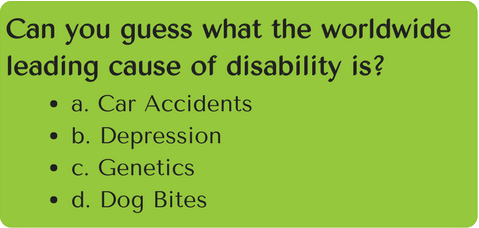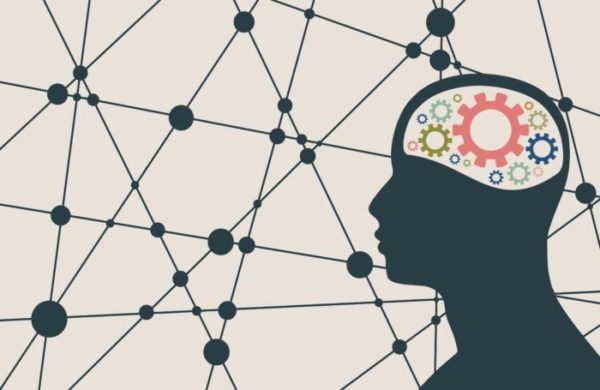April is Mental Health Awareness Month, but is that enough?
Be Mindful of the Nation’s Hidden Crisis
What if I told you that the United States is experiencing a health crisis. But this crisis isn’t being reported about on your local news. It isn’t being talked about at the dinner table. It isn’t even something you’d like to admit to yourself.
This crisis is shrouded in stigma.
Mental health is an issue that spans all genders, all races, all income levels. All humans.
A Debilitating Disease

The answer is depression, and it is also a major contributor to the burden of global disease.
We often view the topic of mental illness as taboo, or even frowned upon. However, the reality is that mental illness is just as prevalent as someone developing a physical ailment like high blood pressure. In any given year, nearly 44 million Americans will suffer from some form of mental illness.
So maybe you’re seeing this as a major issue that should have been addressed long ago, or maybe you’re still not convinced this health crisis has real consequences. Let me try to better show the daily damage mental health inflicts:
- Serious mental illness costs America $193.2 billion in lost earnings per year.
- Mood disorders, including major depression, dysthymic disorder and bipolar disorder, are the third most common cause of hospitalization in the U.S. for both youth and adults aged 18–44.
- Adults in the U.S. living with serious mental illness die on average 25 years earlier than others, largely due to treatable medical conditions.
- Suicide is the 10th leading cause of death in the U.S.
April is Mental Health Awareness Month, but that isn’t good enough. Thirty days of attention isn’t going to change a stigma. It isn’t going to encourage enough people to seek the necessary treatment. It isn’t going to alter the landscape of judgment mental health is trapped within.
To change lives, to save lives, this conversation needs to continue 365 days a year.
Speaking to the root of this health crisis is the beginning, but seeking treatment is the next hurdle to jump. We as a society need to encourage people to take their mental health seriously, and to feel secure to address these problems without backlash of any kind.
More Choices, More Change
While mental health is often times a conundrum to the afflicted, and sometimes the trained professionals treating the illness, alternative options are available to those who suffer. Currently therapy and SSRI medications are often the industry standard for treatment, but clinical trials enable another choice to individuals.
Clinical research is constantly working on new drug and treatment discovery to benefit the growing rise of mental illness worldwide. Participating in these clinical trials could deliver the healing and peace of mind through a treatment option that is not yet available.
Therefore, it is as important as ever before, that people seek out clinical trials for potential help that they could not gain through traditional means.
The mental health crisis won’t end tomorrow, but killing the stigma starts now, and with that, the dominos towards a solution will start to fall.

